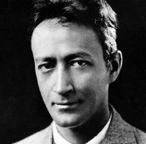Biography

In 1894, Jean Toomer was born in Washington, D.C, the son of a Georgian farmer. Though he passed for white during certain periods of his life, he was raised in a predominantly black community and attended black high schools. In 1914, he began college at the University of Wisconsin but transferred to the College of the City of New York and studied there until 1917.
Toomer spent the next four years writing and published poetry and prose in Broom, The Liberator, The Little Review and others. He actively participated in literary society and was acquainted with such prominent figures as the critic Kenneth Burke, the photographer Alfred Steiglitz and the poet Hart Crane.
In 1921, Toomer took a teaching job in Georgia and remained there four months; the trip represented his journey back to his Southern roots. His experience inspired his book Cane, a book of prose poetry describing the Georgian people and landscape.
In the early twenties, Toomer became interested in Unitism, a religion founded by the Armenian George Ivanovich Gurdjieff. The doctrine taught unity, transcendence and mastery of self through yoga: all of which appealed to Toomer, a light-skinned black man preoccupied with establishing an identity in a society of rigid race distinctions. He began to preach the teachings of Gurdjieff in Harlem and later moved downtown into the white community. From there, he moved to Chicago to create a new branch of followers.
Toomer was married twice to wives who were white, and was criticized by the black community for leaving Harlem and rejecting his roots for a life in the white world; however, he saw himself as an individual living above the boundaries of race. His meditations center around his longing for racial unity, as illustrated by his long poem "Blue Meridian." He died in 1967.
Cane (1923)
The Collected Poems of Jean Toomer (1980)
Essentials (1931)
The Wayward and the Seeking: A Collection of Writings by Jean Toomer (1980)



